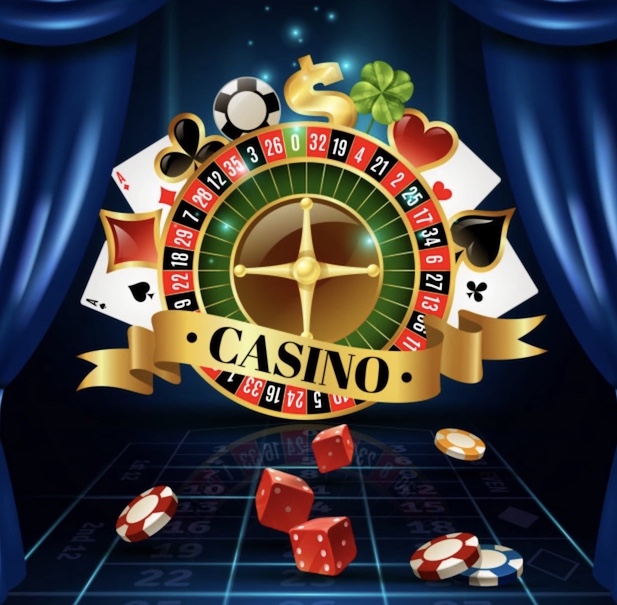
Casino entertainment have long been a captivating form of entertainment, drawing countless of players from diverse cultures around the globe. From the opulent casinos of the Strip to the bustling gambling halls of the Chinese gambling capital, these games serve as a common thread that unites people across a variety of backgrounds. The allure of luck, tactics, and gambling entices not only those hoping to gamble for profit but also those looking for a sense of community.
The cultural impact of casino games extends significantly past the gaming floor. They often embody the values and beliefs of the societies in which they prosper. Games such as Texas hold ’em, pontoon, and the wheel game have embedded themselves into the tapestry of cultural phenomena, influencing multiple fields from movies to fashion. As we explore this intriguing intersection of gambling and life, we can gain insights into how these games shape and are influenced by the surrounding world.
Historical Evolution of Gaming Games
The roots of gaming games can be followed back to old civilizations, where betting in multiple forms was widely engaged in. In the East, around 2300 B.C., a variant of gambling known as Keno was common, while in historic Rome, soldiers would regularly gamble on the outcomes of their matches. The concept of using randomness for fun and income developed over the centuries, leading to the creation of more formal games. By the end of the Middle Ages, betting houses began to appear in Europe, particularly in Italy, which introduced early incarnations of popular games still practiced today.
As gambling gained fame in the continent, the 17th and 18th centuries saw the appearance of gambling establishments as dedicated locations for gaming. The earliest official gaming venue, the Ridotto, was founded in the Venetian city in the year 1638, featuring games like Baccarat and the game Faro. This era marked a major turning point, as casinos began to welcome not just the high society but also the burgeoning middle-income class. The sophistication of activities grew, leading to the creation of new guidelines and variations that enriched the gaming experience.
In the 19th century, the era of industrialization and shifts in societal norms additionally altered the environment of casino activities. The introduction of the game of roulette and new gaming machines pulled in a more diverse crowd, and casinos became seen as acceptable recreation. This time witnessed the globalization of gambling, as casinos expanded from European nations to the New World, culminating in the creation of the legendary Las Vegas Boulevard in the 20th century. The progress of casino games has continued into the present day, including new technologies and digital sites, rendering them available to a worldwide market.
# Cultural Importance across Different Communities
Casino activities have deep-rooted social significance across numerous communities across the planet. For instance, in Las Vegas, the very fabric of the urban landscape is woven around gambling establishments, where playing is not just a pastime but a central aspect of social engagement and social interaction. The bright lights and lively atmosphere attract a vast audience, showcasing how games of chance can shape local economical structures and cultural identities. This setting transforms the notion of recreation into an engaging experience that influences style, music, and even film.
In contrast, some communities treat betting with more caution, seeing it through the lens of morality and tradition. For instance, in many Oriental cultures, games like Mahjong and Pai Gow Gambling are rich with history and possess significant social meanings. These games are often played during gatherings and occasions, fostering community bonds and strengthening familial ties. The act of playing these games goes past mere amusement, reflecting ethics such as deference to seniors and the value of shared enjoyment.
Simultaneously, in European countries such as Monte Carlo and Rome, gambling activities serve as symbols of opulence and sophistication. The elegant atmosphere of these venues attracts both visitors and locals, maintaining a sense of prestige and elitism. The art of the game of poker and the strategic elements of games like baccarat are esteemed, molding social dynamics and creating an allure that fascinates a diverse audience. This underscores how gambling can both echo and influence cultural perspectives towards risk, gain, and social interaction. BJ88
Economic Impact and Tourism
Casino games play a crucial role in the economic landscape of many areas, particularly those that rely heavily on visitor traffic. The revenue produced from gambling establishments fuels local financial systems, creating employment opportunities not only within the casinos themselves but also in connected industries such as hotel management, restaurant services, and entertainment. This influx of tourists, drawn by the attraction of gambling and the overall gaming environment, stimulates spending across multiple businesses, contributing to the economic vitality of the area.
The presence of casinos often leads to the construction of facilities, including hotels, transportation systems, and recreational facilities. These improvements are essential in improving the overall tourist experience, making destinations more appealing to tourists. Additionally, many casinos invest in local communities through support of activities and charitable initiatives, further embedding themselves into the community structure of the locality. Such investment not only supports economic growth but also cultivates a positive image of the gambling sector.
In addition, the global popularity of casino games drives competitive tourism, with locations vying to attract gamblers from around the world. Iconic destinations like Las Vegas and Macau have become synonymous with gambling culture, drawing millions each year. This advantage encourages creativity and diversification within the gaming industry, influencing trends in entertainment and accommodation that resonate beyond their limits. The consequences of this visitor influx extend far, impacting local financial health and cultural exchanges on a worldwide scale.
